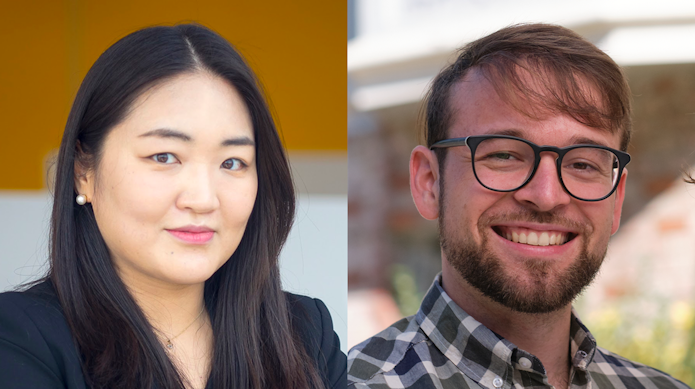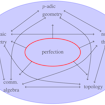SueYeon Chung and Alex Williams Join CCN as Project Leaders

The Flatiron Institute is delighted to announce that SueYeon Chung and Alex Williams will join the Center for Computational Neuroscience (CCN) as associate research scientists and project leaders. In addition, they will have joint appointments as assistant professors with the NYU Center for Neural Science (CNS), further fostering between those pursuing theoretical work at the CCN and researchers at nearby institutions.
“In the coming years, I think Flatiron CCN will become one of the hubs of computational neuroscience,” Chung says. “Being one of the first hires to be part of the exciting early years of the growing new center was very attractive to me.”
As project leaders, Chung and Williams will lead mini-groups within the CCN and the CNS.
Chung’s group, NeuroAI and Geometry, will leverage multidisciplinary expertise and diverse approaches such as theoretical physics, applied mathematics and machine learning. Through these interactions, she plans to build circuit models of the brain, analyze and compare the brain’s inner workings and make predictions in conjunction with experimental data. Chung will join the CNS faculty as an assistant professor starting in September 2022.
Williams will lead the Laboratory for Neural Statistics. The group will develop statistical models and open-source computational tools to extract insights from neural data. He is particularly interested in characterizing flexibility and variability in neural circuits, such as how the dynamics of large neural ensembles change while learning a new skill. He will begin his assistant professorship at CNS in January 2022 and his joint position with the Flatiron Institute in September 2022.
Both Chung and Williams have broad expertise in bringing new ideas and approaches to computational neuroscience.
Chung received her Ph.D. from Harvard University in applied physics, developing a new theory based on statistical physics that showed a formal connection between the geometry of a neural population and the encoded task information. She then joined MIT as a Fellow in Computation in the department of brain and cognitive sciences. While there, Chung applied her newly developed theory to characterize data extracted from visual and auditory neural networks. Most recently, Chung worked as a postdoctoral researcher at Columbia University, where she focused on developing new neural network models and learning rules inspired by neuroscience.
“Having access to the incredible environment at Flatiron, along with top experimental and theory groups at NYU—it is truly a theorist’s dream,” Chung says. She will join the Flatiron Institute in January 2022 and begin her joint position at NYU in September 2022.
Williams earned his Ph.D. from Stanford University in neuroscience. Before that, he worked for one year at the Salk Institute in La Jolla, California, and two years at Brandeis University in Waltham, Massachusetts. He’s recently worked as a postdoc in the statistics department and in the Wu Tsai Neuroscience Institute at Stanford developing neural data analysis methods.
“The computational resources offered by the Flatiron were a big draw, given my research interests,” Williams says. “I’ve always admired Eero Simoncelli’s work. Joining CCN under his leadership and at the beginning of the new center was a rare opportunity, to say the least.”


